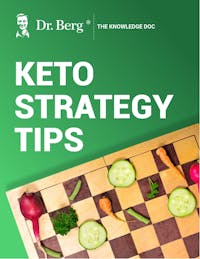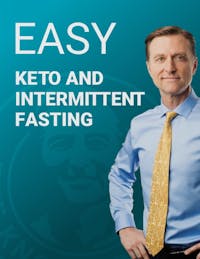What Causes Endometriosis?

Keto Strategy Tips
Expert advice on maintaining a successful keto lifestyle
Learn simple strategies to overcome common challenges and stay on track
Stay motivated with tips and techniques to keep you focused on your keto journey
Practical cutout wallet guide for quick reference on keto-friendly choices and strategies

Keto Strategy Tips
Expert advice on maintaining a successful keto lifestyle
Learn simple strategies to overcome common challenges and stay on track
Stay motivated with tips and techniques to keep you focused on your keto journey
Practical cutout wallet guide for quick reference on keto-friendly choices and strategies

Keto Strategy Tips
Expert advice on maintaining a successful keto lifestyle
Learn simple strategies to overcome common challenges and stay on track
Stay motivated with tips and techniques to keep you focused on your keto journey
Practical cutout wallet guide for quick reference on keto-friendly choices and strategies

Keto Strategy Tips
Expert advice on maintaining a successful keto lifestyle
Learn simple strategies to overcome common challenges and stay on track
Stay motivated with tips and techniques to keep you focused on your keto journey
Practical cutout wallet guide for quick reference on keto-friendly choices and strategies

Keto Strategy Tips
Expert advice on maintaining a successful keto lifestyle
Learn simple strategies to overcome common challenges and stay on track
Stay motivated with tips and techniques to keep you focused on your keto journey
Practical cutout wallet guide for quick reference on keto-friendly choices and strategies

Keto Strategy Tips
Expert advice on maintaining a successful keto lifestyle
Learn simple strategies to overcome common challenges and stay on track
Stay motivated with tips and techniques to keep you focused on your keto journey
Practical cutout wallet guide for quick reference on keto-friendly choices and strategies

Keto Strategy Tips
Expert advice on maintaining a successful keto lifestyle
Learn simple strategies to overcome common challenges and stay on track
Stay motivated with tips and techniques to keep you focused on your keto journey
Practical cutout wallet guide for quick reference on keto-friendly choices and strategies

Easy Keto and Intermittent Fasting
Discover the fundamentals of Healthy Keto® and intermittent fasting
Understand the unique benefits of combining keto and intermittent fasting
Explore what foods to include and avoid on a Healthy Keto diet
Receive practical advice on common pitfalls and how to overcome them
Get a selection of easy-to-make and nutritious recipes to get you started

Easy Keto and Intermittent Fasting
Discover the fundamentals of Healthy Keto® and intermittent fasting
Understand the unique benefits of combining keto and intermittent fasting
Explore what foods to include and avoid on a Healthy Keto diet
Receive practical advice on common pitfalls and how to overcome them
Get a selection of easy-to-make and nutritious recipes to get you started

Easy Keto and Intermittent Fasting
Discover the fundamentals of Healthy Keto® and intermittent fasting
Understand the unique benefits of combining keto and intermittent fasting
Explore what foods to include and avoid on a Healthy Keto diet
Receive practical advice on common pitfalls and how to overcome them
Get a selection of easy-to-make and nutritious recipes to get you started

Easy Keto and Intermittent Fasting
Discover the fundamentals of Healthy Keto® and intermittent fasting
Understand the unique benefits of combining keto and intermittent fasting
Explore what foods to include and avoid on a Healthy Keto diet
Receive practical advice on common pitfalls and how to overcome them
Get a selection of easy-to-make and nutritious recipes to get you started

Easy Keto and Intermittent Fasting
Discover the fundamentals of Healthy Keto® and intermittent fasting
Understand the unique benefits of combining keto and intermittent fasting
Explore what foods to include and avoid on a Healthy Keto diet
Receive practical advice on common pitfalls and how to overcome them
Get a selection of easy-to-make and nutritious recipes to get you started

Easy Keto and Intermittent Fasting
Discover the fundamentals of Healthy Keto® and intermittent fasting
Understand the unique benefits of combining keto and intermittent fasting
Explore what foods to include and avoid on a Healthy Keto diet
Receive practical advice on common pitfalls and how to overcome them
Get a selection of easy-to-make and nutritious recipes to get you started

Easy Keto and Intermittent Fasting
Discover the fundamentals of Healthy Keto® and intermittent fasting
Understand the unique benefits of combining keto and intermittent fasting
Explore what foods to include and avoid on a Healthy Keto diet
Receive practical advice on common pitfalls and how to overcome them
Get a selection of easy-to-make and nutritious recipes to get you started
Endometriosis is a troubling condition that causes concern for those suffering from it. It can be helpful to understand what is causing this problem during such times.
Learn about the common causes of endometriosis and what steps you can take to better support your health while suffering from this condition.
Understanding Endometriosis
Endometriosis is a complex condition where endometrial tissue, which typically lines the uterus, grows outside it. This misplaced tissue can lead to painful and sometimes severe symptoms.
Symptoms of endometriosis may include heavy periods, pain during intercourse, and infertility.

The Role of Hormones in Endometriosis
Hormones, such as estrogen, significantly impact the growth and behavior of endometrial cells in endometriosis. Hormones like estrogen heavily influence the growth and behavior of endometrial cells.
During each menstrual cycle, under the influence of these hormones, this tissue thickens and then breaks down, leading to bleeding.
Research suggests that hormonal imbalance may contribute significantly to the development or progression of endometriosis due to an increased sensitivity within this rogue tissue towards them.
Dietary Influences on Endometriosis
Nutrition also impacts how your body manages conditions like endometriosis because what you eat influences hormone levels, too. Certain foods can help maintain hormonal balance, while others might disrupt it, causing inflammation and aggravating symptoms.
Estrogen Dominance and Endometriosis
The relationship between estrogen dominance and endometriosis is complex but critical to understanding this condition. But, too much estrogen can kickstart the growth of extra-uterine endometrial tissue.
How Tampons Contribute to Estrogen Dominance
You might not expect your period products to affect hormonal balance. But GMO cotton tampons are sprayed with insecticides that act as xenoestrogens—foreign estrogens mimicking hormones in our bodies.
Studies suggest this exposure may tip us into estrogen dominance, making conditions like endometriosis more likely.
To manage this risk, consider alternatives like organic tampons or menstrual cups. They're kinder on your body and won't add pseudo-hormones to your natural hormones.
Dietary Influences on Endometriosis
Diet can play a pivotal role in managing endometriosis. Certain foods and eating habits can either alleviate or worsen the symptoms.
The Impact of Dairy Products on Endometriosis
Growth hormones in dairy products may intensify endometriosis symptoms. Consuming too much dairy could lead to an overgrowth of endometrial tissue, making pain and inflammation more severe.
Studies show that reducing intake might help manage these symptoms better.
GMOs, Grains, Soy Products, and Sugar's Role in Endometriosis
Foods like GMOs, grains, soy products, and sugar can have estrogenic effects that contribute to inflammation.
Research indicates that cutting back on these food types may benefit those with this condition. Examine food labels to ensure that you are aware of the contents of your diet.
Environmental Factors and Endometriosis
The environment around us can considerably affect our well-being, not just visually. One area often overlooked is the link between environmental chemicals and endometriosis.
Insecticides, herbicides, pesticides, and fungicides aren't as harmless as they seem. These chemicals are adept at mimicking estrogen in the body.
And why does this matter? Excess estrogen-like substances can stimulate endometrial tissue growth outside the uterus.
This mimicry isn't something out of a sci-fi movie but a harsh reality for many women battling this condition. To reduce exposure to these harmful chemicals, try going organic whenever possible or grow your own vegetables if you're feeling adventurous.
Nutritional Support for Managing Endometriosis
Endometriosis symptoms may be managed by using specific nutrients and supplements.
The Role of Aromatase Inhibitors in Managing Endometriosis
Aromatase inhibitors are medications that limit the amount of estrogen produced in the body. This could be beneficial because too much estrogen may fuel the growth of endometrial tissue outside the uterus.
Stinging nettle root, a natural aromatase inhibitor, has shown a potential to regulate these hormone levels. By helping balance out your hormones, stinging nettle roots could alleviate some endometriosis symptoms.
Before beginning any new supplement regimen, it is critical to consult with your healthcare provider. It's essential to confer with your healthcare provider before starting any supplement routine to guarantee this is a secure choice because of your medical history.
Organic Products and Endometriosis Management
When it comes to endometriosis, studies show that certain chemicals in non-organic food items may exacerbate endometriosis symptoms.
Swapping out conventionally-grown produce for organic options can help reduce exposure to pesticides that mimic estrogen, potentially reducing the risk of endometriosis.
So, swapping out those pesticide-laden apples for their organic counterparts could give your body a fighting chance against this debilitating condition.
Besides produce, choosing hormone-free meats is another smart move. Many commercial meat products contain growth hormones, not ideal for someone with an estrogen-sensitive disorder like endometriosis.
By making these dietary shifts towards more natural foods, managing your symptoms could become much more manageable.

Endometriosis and Vitamin K2
Endometriosis can be an excruciating and challenging condition for many women, and finding effective ways to manage its symptoms is essential.
Vitamin K2 has emerged as a potential ally in this battle, particularly for addressing heavy periods associated with endometriosis.
Vitamin K2 for heavy periods can help regulate blood flow and reduce excessive bleeding, which is a common concern for individuals with endometriosis. Vitamin K2 may relieve the heavy menstrual bleeding often accompanying this condition by promoting proper blood clotting.
While it's not a cure for endometriosis, incorporating vitamin K2 into your wellness routine might relieve its disruptive symptoms and improve overall menstrual health.
Conclusion
Understanding the dietary influences and causes of endometriosis is crucial for managing its symptoms effectively.
By making informed dietary choices, such as reducing dairy and GMO product consumption, opting for organic options, and incorporating aromatase inhibitors like stinging nettle root, individuals with endometriosis can potentially alleviate symptoms and improve overall well-being.
Additionally, considering the role of vitamin K2 in managing heavy menstrual bleeding associated with endometriosis may offer further support.
While there is no one-size-fits-all solution, adopting a holistic approach to nutrition and wellness can empower you to navigate your journey with endometriosis more effectively.
Nutritional support could be your game changer - aromatase inhibitors may help regulate hormones, while organic products reduce exposure to harmful chemicals.
Your journey through endometriosis doesn't have to be dark or daunting; remember these takeaways for a brighter path forward.
Previous blog
Will Drinking Mineral Water Cause Kidney Stones?Tags

Popular
08/21/2024
55.7K views
02/23/2025
46.8K views
11/18/2024
281.2K views
03/18/2024
11/21/2022




